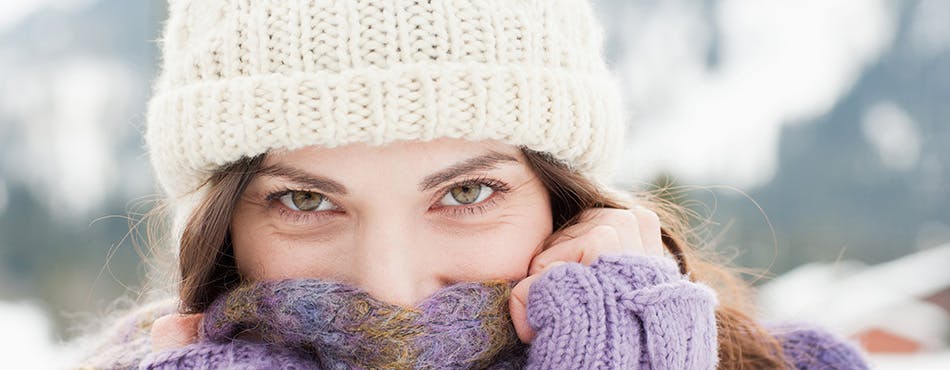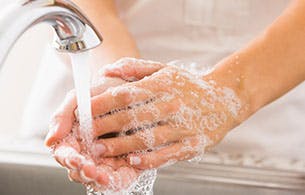Back to Managing Your Triggers articles

Cold Sores From Cold Weather: How to Prevent Winter Cold Sores
Winter can be tough on the whole body as well as your skin, and the lips are no exception. Cold sores in winter are common and can be tough to deal with when you're already dealing with other things like the flu season. Learn how to take care of yourself this winter and better help prevent cold sores.
Can Cold Sores be Caused by Cold Weather?
Cold sores are very common, and you probably got it without knowing it. Cold sores are caused by herpes simplex virus-1 (HSV-1).1 The HSV-1 virus can remain dormant in your system, but every now and then it can become reactivated and develop into a cold sore.1
It's not always clear what causes cold sore outbreaks, but they can be triggered by a variety of conditions, including infections, fever, stress, sunlight, cold weather, and hormone changes. It can be different for each person.1 Cold sores themselves can be triggered by cold weather conditions, so it makes sense that cold sores during winter are fairly common.
Tips for Preventing Cold Sores During Winter
Facing the cold may mean also facing your cold sore virus—but familiarizing yourself with the winter conditions that can trigger your cold sore is a great way to help avoid an outbreak. Here are some simple ways to help steer clear of cold sores this winter.
Stay Healthy
Winter can make you more vulnerable to getting a cold or the flu, and either of these states may increase your body temperature. Since a fever can trigger a cold sore outbreak, it’s important that you take extra precautions against getting sick.
- Give your body ample protection by dressing for the weather. This might mean wearing a hat, scarf, gloves, or whatever you might need to keep your body warm and your immunity up.
- Drink lots of fluids, especially water, to stay hydrated and keep your system flushed. This is not only great protection against germs, but hydration also defends your lips from the dry air caused by winter heating.
- Wash your hands regularly to help protect you from germs that can cause colds and flus. If you aren't able to access soap and water right away, use an alcohol-based hand sanitizer.2
- Practice general good health habits like getting plenty of sleep, managing your stress and eating nutritious food. This can help keep your body strong and working as it's meant to.
Wind and Sun
Winter winds can be cruel to anyone’s lips and dry them out. But if you’re someone who gets cold sores, dry lips can leave you particularly vulnerable to an outbreak. Be certain to always wear lip products that help protect against chapping and contain an SPF to protect against sunlight. Remember, the sun’s rays can be damaging even in the winter.
Take a Nap
The good news is that winter is naturally a great time to catch up on sleep and relax indoors. Both of which help to avoid fatigue and stress, which can trigger cold sores. A nap is also a great way to boost your immune system. By being well rested, your whole body, including your lips, will thank you.
Try following these tips to take care of yourself and help prevent cold sores this winter. Read up on cold sore facts and more lip care tips.
SOURCES
1. Cold Sores (HSV-1). Johns Hopkins Medicine. https://www.hopkinsallchildrens.org/Patients-Families/Health-Library/HealthDocNew/Cold-Sores-(HSV-1)/ Accessed 1/8/2021. Referenced Text highlighted in source document.
2. Healthy Habits to Help Prevent Flu. CDC. https://www.cdc.gov/flu/prevent/actions-prevent-flu.htm/ Accessed 1/8/2021. Referenced Text highlighted in source document.







